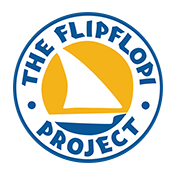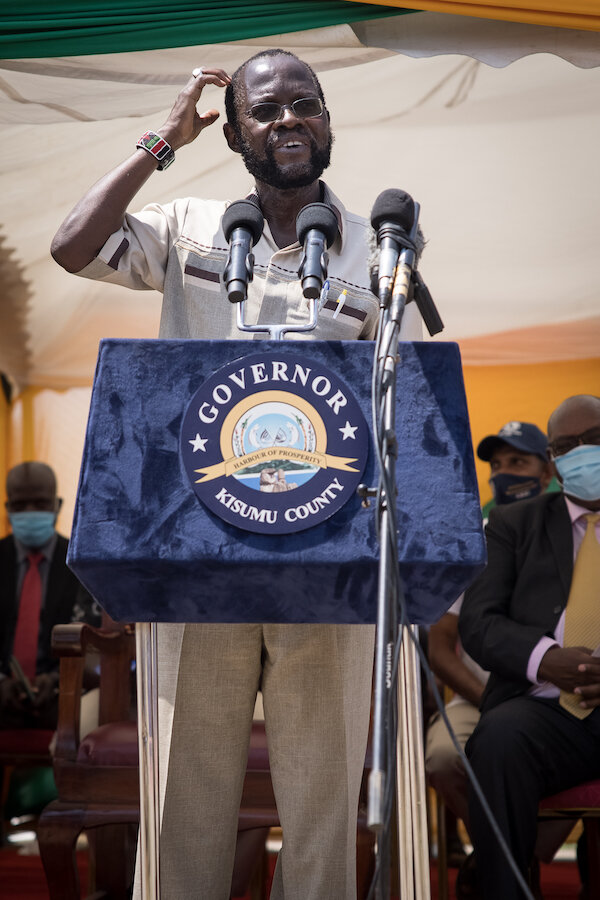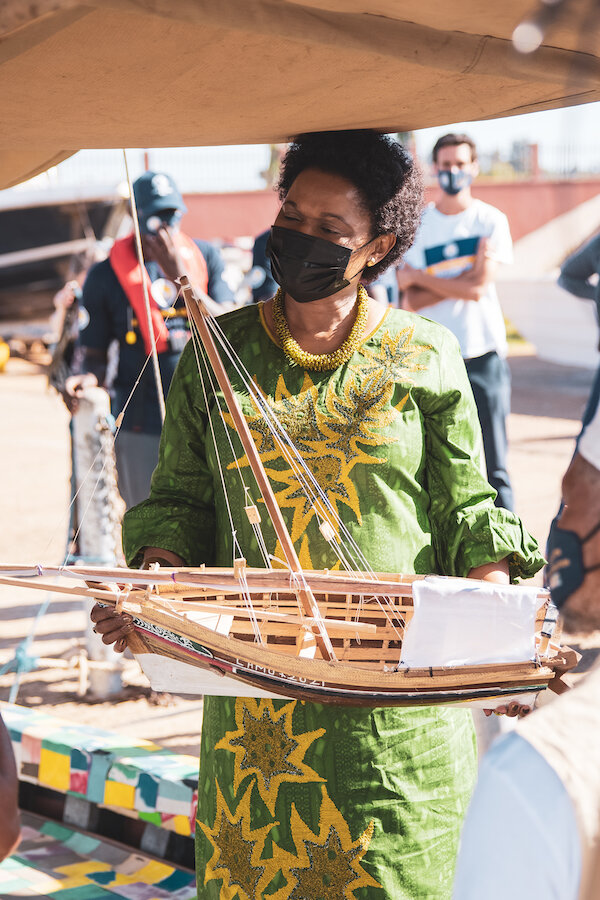Amplifying Landlocked Voices For Our Oceans
By Hannah Evans, with additional reporting by Madison Erdall
Traditional fishing boats at Mwanza, Tanzania | © UMBER Studios + The Flipflopi
World Ocean Day is celebrated every year on the 8th of June. This annual celebration began in 1992 to encourage awareness of the world’s oceans and the importance they have on our planet.
By celebrating our oceans every year, we are also reminded of the impact we each have on them. Like how our individual behaviour impacts our environment and how policies on a local, national and international level all have distinct implications.
We’re all too aware of how our actions can have negative impacts on our oceans. Things like marine pollution, oil spills, degradation of marine life and overfishing all make this abundantly clear. But our actions don’t need to only bring about doom and gloom, for there are many positive impacts that we can have collectively and individually. Actions such as taking part and organising cleanups, the exciting new world of coral nurseries and supporting proper management of fisheries all has a positive impact on the world’s oceans.
After all, it’s important to remember that protecting the oceans is in everyone’s interest. And most often our attention on this day is turned towards coastal countries. However, many positive impacts can be made further upstream…
Waste in Lake Victoria | © UMBER Studios + The Flipflopi
Turning our attention upstream
Just recently, a study by The Ocean Cleanup found over 80% of ocean plastics globally comes from 1000 rivers across the world. This study goes against the previously upheld belief that the majority of ocean plastics came from only 10 rivers.
This study illustrates the point that plastic pollution is truly a global problem. Instead of the problem of only those countries on the banks of just 10 rivers, this study forces us to encourage worldwide action. And as the vast majority of ocean plastics originate from the riverine systems of the world, the time is now to turn our attention inland to tackle this monumental issue.
Plastic reduction is a global responsibility
This research shows that if we can reduce the amount of plastic entering the world’s rivers, marine plastic pollution overall will be reduced. This means that protecting the ocean from plastic pollution is everyone’s responsibility.
This is why The Flipflopi undertook the world’s first circumnavigation of Lake Victoria - Africa’s largest freshwater lake. The purpose of the expedition was to draw attention to the plight of the world’s largest tropical lake and how this impacts not only the 40 million people living in her water basin but us all globally.
The Flipflopi engaged communities to understand their responsibility towards protecting the lake as well as use their considerable influence to gather support for change at a regional level. By sailing approximately 1000kms and holding 10+ events the Flipflopi expedition ignited media attention and garnered policymaker and public engagement quickly and efficiently across multiple locations - from fishing communities to cities.
Throughout our expedition, we were also passionate to provide further evidence of plastics in the waters of Lake Victoria to encourage immediate action to prevent further pollution.
Bahati Mayoma preparing to collect samples on Lake Victoria | © UMBER Studios + The Flipflopi
Using science to encourage change
In 2015 Biginagwa et al. found plastic particles in the guts of 1 out of 5 fish they tested from Lake Victoria - this was the first study proving the presence of plastics in Lake Victoria. A few years later Egessa et al. studied surface water and sediment to show that microplastics were present in all areas they sampled.
As the Flipflopi travelled around the Lake they worked in collaboration with Northumbria University and the University of Dar Es Salaam (UDES), to undertake the first surface level and deep water research into the presence of plastics in Lake Victoria.
The samples are now being tested in the Northumbria lab. It’s likely the research will add to the growing number of studies that have proven the presence of plastics. And by increasing the amount of research into this area, scientists and Flipflopi hope it will encourage leaders to introduce stricter legislation to ban single-use plastics.
Bahati Mayoma from UDES was responsible for collecting the samples across the lake. According to Bahati, "Science is important as it helps communities understand the extent of pollution and take action based on available data. We've found plastic on remote islands in the lake, showing that this problem is massive and that it requires a regional approach to tackle it."
It’s time for an East African approach to plastics
Within the East Africa region, there are a number of important rivers and water bodies that flow directly into the oceans. Arguably one of the most important of these are the seven main rivers that feed into Lake Victoria that then flows out into the Mediterranean Sea via the Nile. The plastic that flows from the Nile is thought to contribute over 220,000 tonnes of plastic waste every year this is nearly half of the 570,000 tonnes of plastics that flow into the Mediterranean yearly.
Despite some regional attempts to address plastic pollution such as the EAC Polythene Materials Bill of 2017, East Africa remains starkly diverse in terms of plastic legislation and policy effectiveness. Legislation banning certain single-use plastics have been proposed in Kenya, Uganda, Rwanda, and Tanzania, but policy success and enforcement have varied widely.
Children in Mwanza demonstrating to end plastic pollution | © UMBER Studios + The Flipflopi
Arguably, Rwanda leads the way in plastic bans within the region. First with the passing of Law N57 in 2008 and then introducing stricter measures in 2019, extending the ban to other single-use plastic products such as straws and bottles. Kenya introduced a ban on single-use plastic bags in 2017 which has by and large been successful. The laws were widened in 2020 by banning all single-use plastic items in protected areas.
While Rwanda and Kenya’s stories are largely ones of success, Uganda has encountered many obstacles hindering the implementation of legislation. Despite announcing a ban on single-use plastics in 2007, Uganda’s single-use plastic legislation has largely failed. Bans on plastics less than 30 microns have been proposed in 2007, 2009, 2015, 2018, with the latest occurring in 2019, yet enforcement has lacked and plastic bags continue to be produced, sold, and smuggled across borders to countries with stricter policies.
In 2019, Tanzania announced a ban on the manufacturing, selling, import, and export of plastic carrier bags despite historically little action concerning curbing plastic pollution. However, there is little enforcement of this ban nationally.
This kind of mismatched policy coupled with the impact that the water bodies of East Africa has illustrated the point that more must be done to curb the use of plastic use and whatever action that is taken must be cohesive across the region. This is why Flipflopi is working to draft a bill to introduce stricter plastics legislation to take to the East Africa Community.
However, in the meantime, it’s important that more is done in the locality to bring greater attention to the impact landlocked countries can and do have on the wider environment.
Introducing #landlockedimpact
Science has proven the need to focus greater attention on landlocked countries to reduce the amount of ocean plastic. Now it’s time for the larger community to also be made aware of this.
The Flipflopi is working with InfoNile and End Plastic Pollution Now to bring Ugandan attention to the importance of protecting life underwater as per SDG 14. Landlocked countries are often left out of discussions about the oceans. And as such communities often don’t engage with marine issues. However, as marine plastic has a huge impact on the conservation of biodiversity and habitats underwater and recent research shows that the majority of it comes from inland the time is now to act to prevent further pollution.
End Plastic Pollution Now founder Nirere Sadrach at the River Mwizi | © End Plastic Pollution Now
Uganda has already indicated their commitment to protecting our oceans by signing the UN’s Clean Seas Pledge in 2019. The aim of the pledge is to tackle marine waste by connecting and engaging with individuals, businesses and governments. To date, 62 countries have signed on to the pledge to bring us closer to a cleaner ocean.
However, more must be done to ensure our oceans keep clean as much plastic waste is still seen to be flowing freely into oceans from countries signed onto this pledge. Sadrach Nirere, founder of End Plastic Pollution Now has been following the River Rwizi in Uganda, one of the tributaries that feed into Lake Victoria. Sadrach’s team found plastics in huge quantities - specifically plastic bottles and bags. They found that many people living nearby have very little knowledge of the dangers of plastic pollution so are unaware of the true cost of poorly managed waste such as this.
But with some awareness and education programmes, things can and will change. That is why this partnership is focused on creating awareness on the impact of ocean health on landlocked countries and how behaviours by landlocked countries can impact the oceans. The groups plan to offer training and support for young people to communicate scientific research on water and climate issues and to call upon responsible bodies to act now to protect the ocean.
It’s estimated that 150 million tonnes of plastic waste are currently circulating in the world’s oceans and seas. And that every year an additional 8 million tonnes is added to the total.
While we can do little to clear the plastic that has already made its way into our oceans, we do have the power to turn off the tap.
By creating greater awareness among communities and by putting pressure on those in power to legislate changes a future less dependent on plastics with greater capacity for recycling is in sight.
If the time spent on Lake Victoria showed anything, it was communities and leaders capacity for learning and the desire for change. Once people are made aware of the huge problems poorly managed plastic waste causes, there is a huge desire to create a change. This was illustrated by two Kenyan county governors calling for bans of single-use plastic in their counties and the Queen of Buganda signing our petition to end single-use plastics.
Now it’s time to gather more support and force greater action. The future we want to see is in our hands. Let’s join them to make it a plastic-free one.
If you’d like to add your name to the petition to end single-use plastics in East Africa, click here.
If you'd like to stay up to date with Flipflopi events, milestones and achievements hit the button below to join our non-spammy mailing list!







